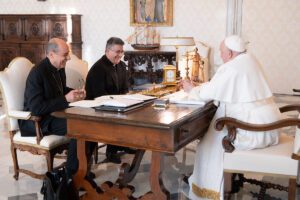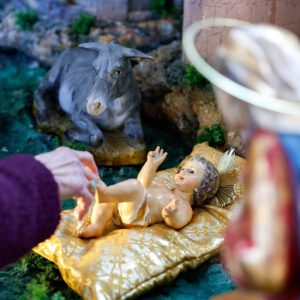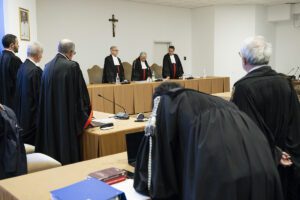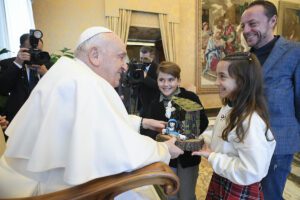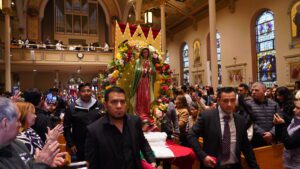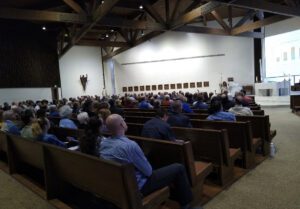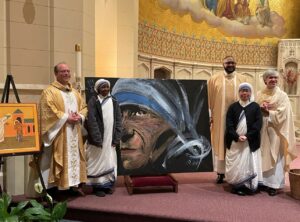VATICAN CITY (CNS) – The Dicastery for the Doctrine of the Faith’s declaration on informally blessing same-sex couples or other non-married couples is a reminder that the Catholic Church and its pastors never close the door on people seeking God’s help, said a commentary published in Vatican media.
“The heart of a shepherd cannot remain indifferent to the people who approach him, humbly asking to be blessed, regardless of their condition, their history or the path of their life,” said the commentary by Andrea Tornielli, editorial director of the Dicastery for Communication.
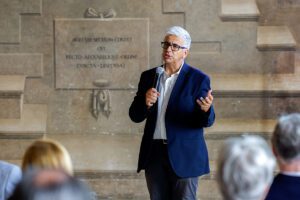
“The shepherd’s heart does not extinguish the flickering light of one who senses their own incompleteness, knowing they need mercy and help from on High,” Tornielli wrote in a piece published Dec. 18 in multiple languages on the Vatican News website and in the Vatican newspaper, L’Osservatore Romano.
The doctrinal dicastery’s document, “Fiducia Supplicans” (“Supplicating Trust”) was approved by Pope Francis during an audience with Cardinal Víctor Manuel Fernández, dicastery prefect, Dec. 18 and published the same day.
Tornielli explained that it “opens the possibility of blessing couples in irregular situations, including same-sex couples. It clarifies that blessing in this case does not mean approving their life choices and emphasizes the need to avoid any ritualization or other elements that may remotely imitate marriage.”
“The origin of the declaration is evangelical,” Tornielli said, because it draws from the myriad examples in the Gospels of Jesus breaking “traditions and religious prescriptions, respectability, and social conventions. He performs actions that scandalize the self-righteous, the so-called ‘pure,’ those who shield themselves with norms and rules to distance, reject and close doors.”
Everyone who approached Jesus “encountered His gaze and felt loved, recipients of an embrace of mercy given to them without any precondition,” Tornielli wrote. And “discovering themselves loved and forgiven, they realized what they were: poor sinners like everyone else, in need of conversion, beggars for everything.”
In his introduction to the declaration, Cardinal Fernández wrote that it “remains firm on the traditional doctrine of the Church about marriage, not allowing any type of liturgical rite or blessing similar to a liturgical rite that can create confusion,” but it also explores the “pastoral meaning of blessings” in a way that opens “the possibility of blessing couples in irregular situations and same-sex couples without officially validating their status or changing in any way the Church’s perennial teaching on marriage.”
The church “remains firm” in teaching that marriage can be contracted only between one woman and one man, he said, and continues to insist that “rites and prayers that could create confusion” about a marriage and another form of relationship “are inadmissible.”
But, Tornielli wrote, the declaration also insists that a priest or deacon with a “shepherd’s heart” would see in a couple’s request for a blessing “a crack in the wall, a tiny opening through which grace might already be at work. Therefore, their first concern is not to close the small crack, but to welcome and implore blessing and mercy so that the people before them can begin to understand God’s plan for their lives.”

